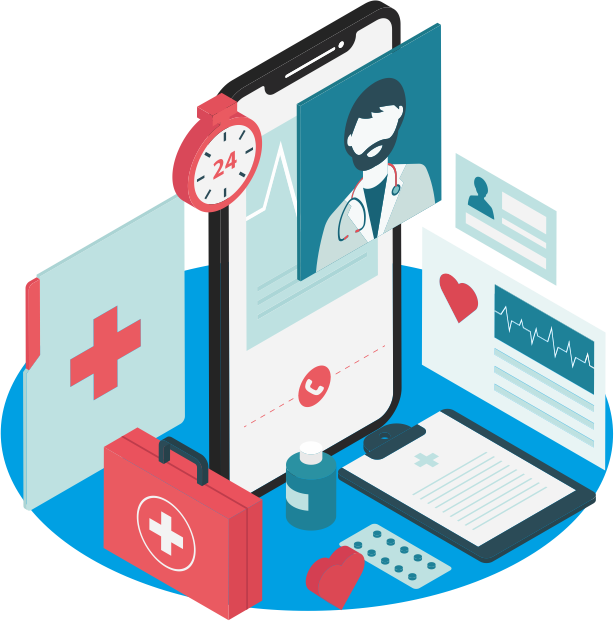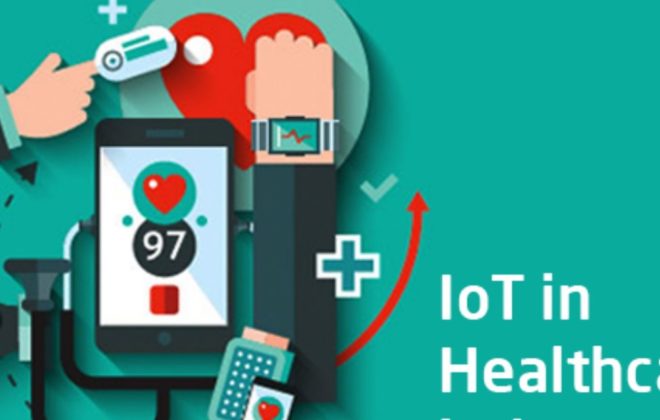Key Technologies That Are Making Smart Hospitals Possible Today
The last few decades have seen a tremendous shift in the capacity and also the capability of the healthcare sector suggesting the odds of a significantly new picture of hospitals. Today, medical experts view health care services based on the digital characterization of patients. Advanced methods, digital techniques, and sensor-based diagnosis are about to bring a shift of paradigm in healthcare. With a vast amount of health data being generated and the proliferation of modern technologies, several researchers believe that the market of the smart hospital would riseby USD 63 Billion by the end of 2024- amounting to a CAGR growth rate of 23.5%. According to a Frost & Sullivan report, by the end of 2025, 10% of the hospital across of globe would take the initiatives to turn smart. A plethora of technologies has paved the way for the emergence of smart hospitals.
Let’s take a look –
Five Technologies Backing Smart Hospitals
Cloud
Reports suggest that the total market of cloud computing in healthcare is anticipated to reach USD 9.48 billionby the end of 2020. Cloud computing is helping hospitals dramatically reduce their technology implementation costs. With robust storage capabilities, extreme flexibility, and low costs, cloud enables seamless operations for healthcare organizations. With the cloud, data can be available for everyone in the healthcare ecosystem anytime, anywhere in a device-agnostic manner. This helps in reducing inefficiencies and enhancing the quality of care. Smart hospitals rely on connectivity – with the cloud, it has become extremely easy to establish the connectivity, exchange data across multiple devices and systems, analyze the data quickly, and make the insights available for informed decision-making.
Artificial Intelligence
No doubt Artificial Intelligence (AI) has transformed the healthcare sector. There are several examples of implementations of AI in healthcare. For example, today, deep learning algorithms have altered the way medical professionals diagnose and analyze stress. Micro-expression analysis is termed as an effective technique for the analysis of data from images. Several experts are now inducing AI-based systems for digital scanning of an eye.
That apart, the healthcare industry is facing a major shift owing to the prevalence of Chatbots and Virtual Assistant. Healthcare institutes are using these assistants to connect with their patients, generate personalized plans for them, and also help them by answering some of their most common health-related questions.
The Deepmind Health Project of Google or the IBM’s Watson technology used for Oncology – there are several successful implementations of AI in healthcare. Smart hospitals focus on improved patient outcomes and increased efficiencies – in both these areas, AI has a critical role to play. By facilitating effective data management, AI helps in improving the decision-making. By offering real-time visibility into the hospital operations, it helps in improving the hospital management. Online consultations powered by AI assistants are helping in not only reducing the healthcare costs but also helping in enhancing the doctor-patient relations.
IoT
IoT has revolutionized the healthcare industry. IoT and sensors are the backbones of smart hospitals and facilitate connected healthcare. Through connected systems, processes, and workflows, smart hospitals are able to enhance the quality of care while reducing the cost of care. Some of the most commonly leveraged use cases of IoT in smart hospitals include remote patient monitoring for management of the remote patients with greater health risk, remote asset management for optimized utilization of hospital assets, ingestible sensors for adherence to medication, sensors of patient registration and tracking, and many more. That apart smart hospitals are also leveraging IoT for other areas such as smart building and smart parking.
Wearables
One technology that everyone is forced to take notice of in the healthcare industry is wearables. Fitness tracking devices such as Fitbit or the Apple watch keep all updated with individuals’ step to step movement, calories burned and sleep record. Medical experts now advise patients to use smartwatches so that they can effectively monitor the heart rate of the patients. In fact, some of the insurance companies have also started providing special policies to people who use fitness tracking devices.
Monitoring timely movements of the patient in the hospital is easy. However, once the patient leaves the medical facility, it is hard for doctors to keep track of patients’ health. Today, wearables are capable of detecting the abnormal heartbeat and the indication of atrial fibrillation. MYIA labs have developed under-bed sensors and apps to track the respiratory rate and also the heartbeat while the patients are asleep. Diabetes is one such disease that is hitting groups of people across the globe. And it is imperative for the patients to keep a track of their glucose level. Diabetes Sentry is a wearable that traces the temperature of the skin and uses the perspiration level to note a drop in the sugar levels. Patients can now keep track of their diabetes easily and take necessary precaution to prevent the rise of same. Smart hospitals are leveraging the powers of such wearables to helps the hospital staff and doctors stay connected with their patients and help the patients keep track of their health.
Mobility
Gone are the days when mobile technology was restricted to cabs or food delivery. Another domain streamlined with the advent of mobile technology is the healthcare. It is expected that mobility in the area of healthcare is all set to rise to USD 19 billion by the end of 2021. Smartphones have made life easier, now reports can reach to either to patients or doctors via instant messaging. This reduces the operational time by 26 minutes. Several devices have inbuilt sensors that are worn on the chest and can track the patient health promoting mobility. There are a variety of mobile apps to keep track of the health of the patient and any insignificant condition is promptly intimated to both the patient and doctor through a message. Smart hospitals are using mobility solutions to promote a better life for patients and also to facilitate smarter decision-making.
Smart Technologies, Smart Hospitals
With rising healthcare costs, higher demands for quality healthcare, increasing lifespan, and increasing chronic diseases, the healthcare industry has turned to technology for possible solutions. Hospitals have started transforming into smart hospitals with an objective to enhance the quality of care, increase patient satisfaction, and reduce healthcare costs. With the proliferation of technologies such as cloud, AI, IoT, mobility, etc. the ROI from smart hospitals is becoming quite apparent.




